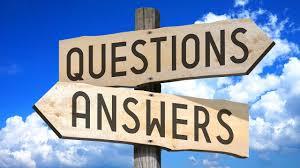World Politics-What role does soft power play in the global influence of a country?

Soft power plays a crucial role in the global influence of a country by shaping international relations through attraction and persuasion rather than coercion or force. Unlike hard power, which relies on military might and economic leverage, soft power derives from a country’s cultural appeal, political values, foreign policy, and diplomatic efforts.
Here’s how soft power contributes to a country’s global influence:
1. Shaping Global Perceptions
- Cultural Influence: Countries with rich and influential cultures, such as the United States with Hollywood, South Korea with K-pop, or France with its art and cuisine, can project a positive image globally. This cultural appeal fosters goodwill, admiration, and a desire to emulate or align with that country.
- Promotion of Values: A country’s commitment to values such as democracy, human rights, and freedom can enhance its reputation and make it a model for others. For example, the promotion of democratic governance by Western nations often resonates with populations in countries seeking reform, increasing the influence of those promoting nations.
2. Building International Alliances and Partnerships
- Diplomatic Engagement: Effective use of soft power allows countries to build and maintain alliances and partnerships through diplomacy, dialogue, and collaboration. This can lead to cooperative relationships that benefit both parties, as seen in the European Union’s emphasis on soft power to foster regional unity.
- Multilateralism: Countries that champion multilateral institutions, like the United Nations, the World Health Organization, or regional organizations, can extend their influence by shaping global norms, setting agendas, and leading international efforts on issues like climate change, health, or security.
3. Enhancing Economic Influence
- Attracting Investment and Tourism: A country with a strong cultural and political appeal can attract foreign investment and tourism, boosting its economy. The attractiveness of a country as a tourist destination or as a place to do business is often linked to its cultural soft power.
- Branding and Exports: Soft power helps enhance a country’s national brand, making its products and services more desirable on the global market. For example, "Made in Germany" is associated with quality and reliability, enhancing Germany’s economic influence globally.
4. Facilitating Global Leadership
- Setting Global Agendas: Countries with significant soft power can lead global initiatives on issues such as climate change, global health, or poverty alleviation. Their ability to persuade other nations to adopt their perspectives and solutions allows them to set the international agenda.
- Crisis Response: In times of global crises, such as pandemics or natural disasters, countries that provide aid and support often increase their soft power by demonstrating leadership and compassion. For example, China’s Belt and Road Initiative is partially an attempt to build influence through infrastructure development and economic assistance.
AfriPrime App link: FREE to download...
https://www.amazon.com/Africircle-AfriPrime/dp/B0D2M3F2JT
5. Countering Negative Perceptions and Soft Balancing
- Public Diplomacy: Through public diplomacy, countries can counter negative perceptions or misinformation about them, helping to mitigate conflicts and improve bilateral relations. This involves cultural exchanges, international broadcasting, and engagement with foreign publics.
- Soft Balancing: Smaller or less powerful countries may use soft power to balance against more powerful nations by forming coalitions, participating in international institutions, and promoting norms that constrain the behavior of dominant states.
6. Influencing Global Public Opinion
- Media and Information: Countries with influential media outlets or control over significant information channels can shape global narratives. For instance, English-language news networks like BBC and CNN have a broad international audience, allowing the UK and the US to influence global public opinion.
- Education and Exchange Programs: Educational exchanges and scholarships, such as those offered by the Fulbright Program or the Erasmus Mundus program, enable countries to cultivate relationships with future global leaders, enhancing long-term influence.
7. Promoting Peace and Stability
- Conflict Resolution: Soft power can be used to mediate conflicts and promote peace by providing neutral ground for dialogue, offering incentives for peaceful resolutions, or leading peacebuilding initiatives.
- Humanitarian Aid: Countries that are active in providing humanitarian assistance during crises enhance their global standing and influence by demonstrating empathy and solidarity with affected populations.
8. Long-Term Strategic Advantages
- Sustainable Influence: Unlike hard power, which often requires constant investment and can lead to resentment, soft power creates sustainable influence by building trust, respect, and lasting relationships.
- Resilience in Global Affairs: Countries that rely on soft power can often navigate global challenges more effectively by leveraging their reputations and networks, making them more resilient in the face of shifting global dynamics.
Soft power is a vital component of a country’s global influence, enabling it to achieve its international objectives through attraction and persuasion rather than force or coercion. By fostering cultural ties, promoting values, building alliances, and shaping global norms, soft power allows countries to exert influence in a way that is often more sustainable and less confrontational than hard power. While soft power alone may not be sufficient to address all global challenges, it is an essential tool in the complex landscape of international relations.
AfriPrime App link: FREE to download...
- Questions and Answers
- Opinion
- Motivational and Inspiring Story
- Technology
- Live and Let live
- Focus
- Geopolitics
- Military-Arms/Equipment
- Security
- Economy
- Beasts of Nations
- Machine Tools-The “Mother Industry”
- Art
- Causes
- Crafts
- Dance
- Drinks
- Film/Movie
- Fitness
- Food
- Games
- Gardening
- Health
- Home
- Literature
- Music
- Networking
- Other
- Party
- Religion
- Shopping
- Sports
- Theater
- Health and Wellness
- News
- Culture

